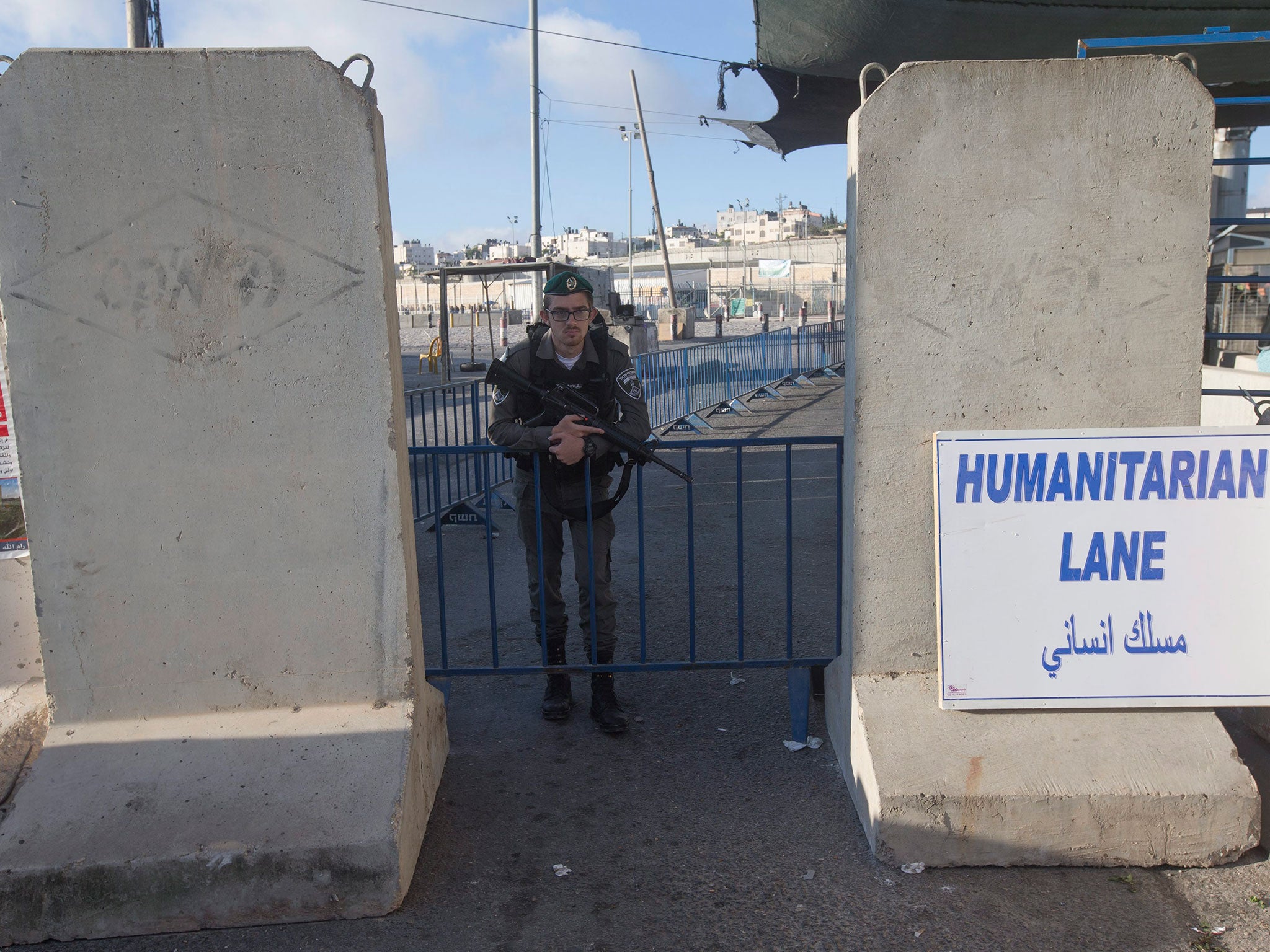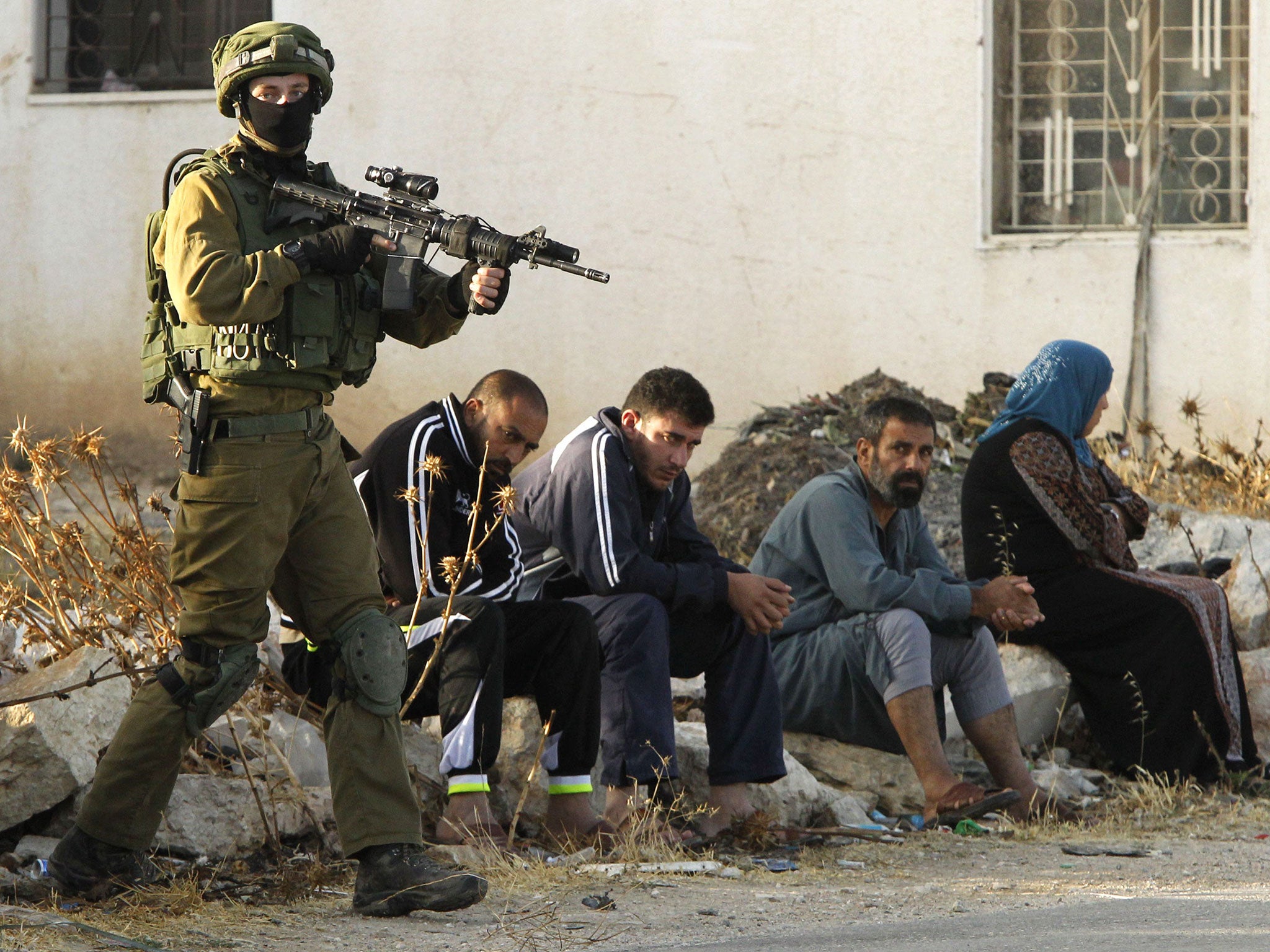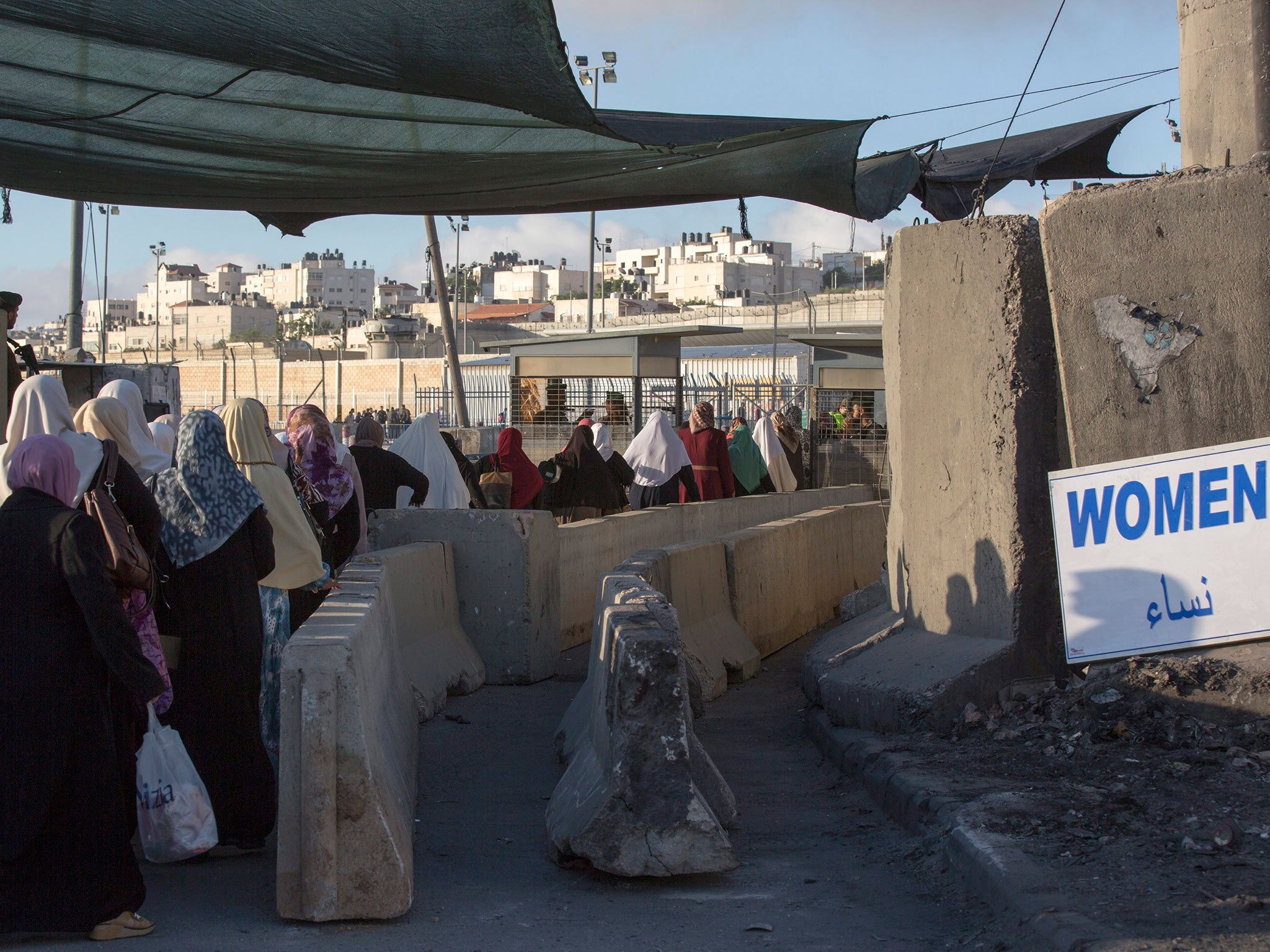Tel Aviv attack: Israeli authorities seal off West Bank and Gaza as UN condemns 'collective punishment' of Palestinians
Palestinians with permits to worship in Jerusalem were exempt and humanitarian access is allowed

Your support helps us to tell the story
From reproductive rights to climate change to Big Tech, The Independent is on the ground when the story is developing. Whether it's investigating the financials of Elon Musk's pro-Trump PAC or producing our latest documentary, 'The A Word', which shines a light on the American women fighting for reproductive rights, we know how important it is to parse out the facts from the messaging.
At such a critical moment in US history, we need reporters on the ground. Your donation allows us to keep sending journalists to speak to both sides of the story.
The Independent is trusted by Americans across the entire political spectrum. And unlike many other quality news outlets, we choose not to lock Americans out of our reporting and analysis with paywalls. We believe quality journalism should be available to everyone, paid for by those who can afford it.
Your support makes all the difference.Israeli authorities have sealed off the West Bank and Gaza strip to stop Palestinians entering Israel as military operations continue following a terror attack in Tel Aviv.
A spokesperson for the Israel Defence Forces (IDF) said the shutdown would be in place until midnight on Sunday, preventing crossings in all but “medical and humanitarian cases”.
Thousands of Palestinians holding special permits to pray in Jerusalem were exempt from the ban, according to the Coordinator of Government Activities in the Territories (Cogat).
The Israeli military body had already revoked travel permits for around 83,000 Palestinians in a move the United Nations said could amount to “collective punishment”.
The UN High Commissioner for Human Rights, Zeid Ra’ad al-Hussein, condemned the shooting attack that left four Israelis dead and several injured on Wednesday, in what was the most deadly single attack in an eight-month wave of violence.
“We are also deeply concerned at the response of the Israeli authorities, which includes measures that may amount to prohibited collective punishment and will only increase the sense of injustice and frustration felt by Palestinians in this very tense time,” spokesperson Ravina Shamdasani said.
“Israel has a human rights obligation to bring those responsible to account for their crimes. And this it is doing.
“However the measures taken against the broader population punish not the perpetrators of the crime, but tens - maybe hundreds - of thousands of innocent Palestinians.”
The home village of the two Palestinian attackers – Yatta - has been completely sealed off since Wednesday, with an unknown number of people arrested in military raids.

Cogat also suspended all permits for family visits for Ramadan, affecting 83,000 Palestinians, as well as banning travel to Israel for 204 relatives of the Tel Aviv attackers.
Two additional IDF battalions were also being deployed in the West Bank “in accordance with situation assessments”, including hundreds of infantry troops and elite reconnaissance units.
The closure of the Occupied Palestinian Territories, which were seized from Jordan and Egypt in the 1967 war, means that those working in Israel or with family there will be unable to travel.
A spokesperson for the Israeli Embassy in London told The Independent: “There will be no entrances to Israel until Sunday night, but despite the terror attack and high state of alert, permit holders are being allowed in for prayers in Jerusalem.”
Israel’s heavily militarised border crossings were previously closed for two days in May during Remembrance Day and Independence Day commemorations and the measure is frequently imposed over Jewish holidays.
The new restrictions came on the first Friday of Ramadan, when thousands of Muslims were expected to converge for prayers at the al-Aqsa Mosque, which is the third-holiest site in Islam.

Palestinians with permits to pray in Jerusalem will have to return home after worship, while entry to the al-Aqsa compound, which sits on the Jewish holy site of Temple Mount was restricted to permit holders, men above the age of 45 and women, Ma’an News Agency reported.
There are 101 different permits governing the movement of Palestinians, Haaretz reports, with the most common allowing them to work in Israel and others allowing travel for clerics, medical staff, farming and even funerals.
Benjamin Netanyahu, the Israeli Prime Minister, announced the introduction of a “range of offensive and defensive steps” after meeting with security officials on Thursday.
“There will be intensive action by the police, the army and other security services, not just to catch every accomplice to this murder but also to prevent further incidents,” he added.
In what he said was a deterrent measure, the new Israeli defence minister Avigdor Lieberman also ordered that the bodies of Palestinians killed while carrying out attacks would no longer be returned to their families for burial.
Hamas, the Islamist group that controls Gaza, praised the Tel Aviv murders and claimed they were a “natural response to the Israeli occupation’s crimes against Palestinians and the constant Israeli desecration of al-Aqsa Mosque and Muslim sanctities”.
Spokesperson Sami Abu Zuhri said: “This operation proves that the occupation and the Palestinian Authority failed to stop the intifada.”
On one of its official Twitter accounts, Hamas said its followers would target “Lieberman's bravado” and threatened further attacks, claiming Ramadan will be “a disaster for Israeli leaders and the security forces”.
Hamas also distanced itself from the Palestinian Authority, whose President, Mahmoud Abbas, condemned all attacks on civilians but did not explicitly mention the Tel Aviv shootings.
A statement from his office said it “stands against attacks on civilians, regardless of its sources and justifications.“
The UN Security Council called for the perpetrators to be brought to justice and said its 15 members "reiterated that any acts of terrorism are criminal and unjustifiable".
Travel restrictions and increased security checks are routinely brought in after attacks in Israel and the West Bank, which have seen 32 Israelis and two Americans killed in stabbings, shootings, bombings and car rammings over the last eight months.
About 200 Palestinians have been killed during that time by the Israeli security forces, who said the majority were attempting or carrying out attacks, although others were shot during protests and clashes.
Join our commenting forum
Join thought-provoking conversations, follow other Independent readers and see their replies
Comments